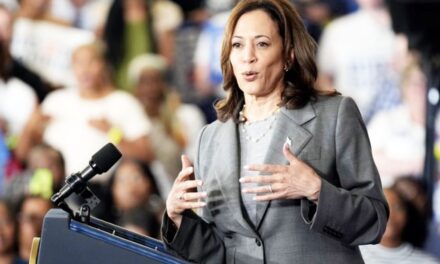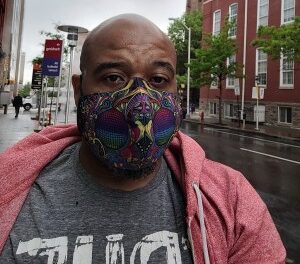By Barnett Wright
The Birmingham Times
Randall Woodfin is likely to run for a third consecutive term as Birmingham mayor, he intimated on a podcast released on Sunday.
Woodfin, when asked by Iva Williams III, host of the Intravenous 205 podcast, why he’s no longer talking about serving just “two terms” Woodfin responded, “I took your advice.”
After a wide-ranging 50-minutes discussion, the Season 4, Episode 1 podcast ended on that note.
Reached Sunday about his plans for a third term, Woodfin sent a text message that read, “There is much more work to do for neighborhoods and infrastructure. If the people of Birmingham will have me I’m more than willing to continue to serve.”
Woodfin, 42, is nearly midway through his second term after winning elections for Birmingham mayor in 2017 and 2021. The next Birmingham mayoral election is Aug. 26, 2025.
If Woodfin ultimately seeks a third term his decision could have political implications near and far. He’s long been a favorite of the Biden administration and seeking a third term as mayor would temper speculation of cabinet position in the Capitol, for now.
Closer to home, Woodfin’s name has been mentioned as a candidate in a redrawn district map that provides Black voters with a new opportunity to elect the candidates of their choice.
If Woodfin didn’t say outright he was a candidate for a third term on Sunday’s podcast, he certainly sounded one. “Paving, as it relates to neighborhood revitalization, is the number one infrastructure investment we’ve made … over $63-plus million have been put into paving streets,” he said on the podcast. “There is nothing more we’ve spent tax dollars on in the 5-plus year period [since being elected in 2017] than street paving.”
He was asked whether crime has overshadowed some of that work and other accomplishments of his administration. He responded on the podcast, “my number one job is public safety … I’m unaware of any police officer or police force in America where an actual police officer can predict when somebody is going to shoot somebody. The government can’t predict when two people who are beefing will decide to air it out with pistols.”
He said on the podcast the city had several programs in place to reduce gun violence which included 1, enforcement (officers, real-time crime center and cameras); 2, re-entry (workforce training, employment opportunities, housing, community service “to make sure they don’t get back into crime or do the same thing that got them into trouble”); 3, prevention (Birmingham Promise, which exposes young people to job opportunities while they are in high school; conflict resolution programs at an early age; financial literacy for young people, mental health and hospital based violence prevention). “We do believe all those tools long term will work,” he told Williams.
He was also asked about the growth in downtown as opposed to neighborhoods beyond the City Center.
“The existing growth near our City Center produces taxes; taxes allow us to pave more streets … allow us to tear down blight … allows us to cut that overgrown lot that is not even public property,” Woodfin said.
He added that neighborhoods “west of I-65 … with a current population, or historically, has always been Black” are the beneficiaries of a $50 million federal grant announced in July which the city plans to use to kickstart a $294 million investment in the Graymont, Smithfield and College Hills neighborhoods, providing 1,000 subsidized, affordable, and market-value homes to replace the 900 units of the aging Smithfield Court.
“That $50 million grant did not fall out of the sky from HUD (U.S. Department of Housing and Urban Development),” the mayor said on the podcast. “That was hard work … we’re about to change lives.”
Woodfin was first elected mayor of Birmingham in 2017. His first run for the seat, he beat out 11 other candidates, including incumbent Mayor William Bell, who Woodfin trounced in a runoff with about 59 percent of the vote.
In the 2021 race he did even better against a stronger field, garnering more than 64 percent of the vote, avoiding a runoff against seven challengers, including Bell once again and Jefferson County Commissioner Lashunda Scales.










